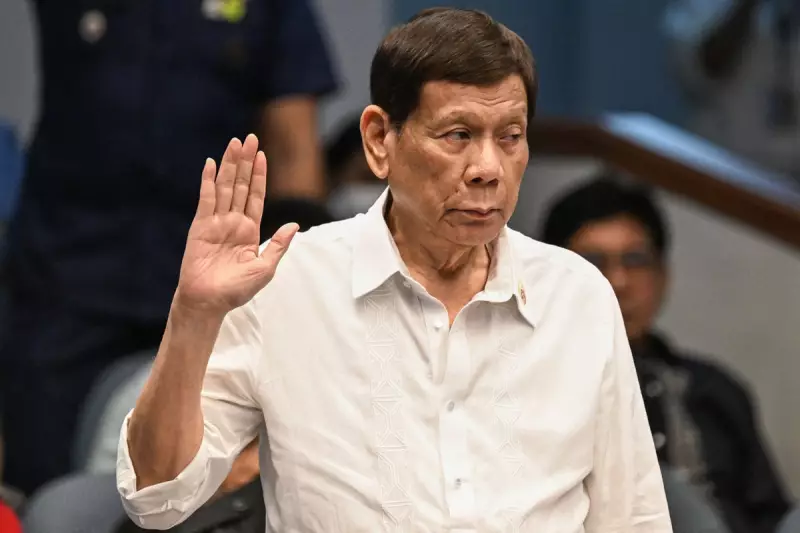
The International Criminal Court (ICC) has taken a monumental step by filing formal charges against former Philippine President Rodrigo Duterte. The allegations centre on crimes against humanity committed during his administration's controversial and brutally efficient anti-drug campaign.
A Bloody Legacy Comes Under Global Scrutiny
Duterte's presidency, which spanned from 2016 to 2022, was defined by his vehement 'war on drugs'. This initiative, promising to eradicate the nation's drug trade, resulted in a staggering death toll. Official government figures acknowledge over 6,000 fatalities in police operations, while human rights organisations estimate the true number could be triple that, with many killings attributed to unofficial vigilante groups.
The ICC's pre-trial chamber has now greenlit a full investigation, asserting that the Philippine justice system has been 'unwilling or unable' to genuinely prosecute those responsible for the alleged atrocities. This move signals that impunity for state-sanctioned violence will be challenged on the world's stage.
Defiance and Denial from the Former Leader
In characteristic fashion, the former leader has responded with belligerent defiance. Duterte has publicly dared the ICC to issue a warrant and has vowed not to cooperate with what he labels a 'waste of time and money'. His spokesperson has reinforced this position, stating the Philippine government will not recognise the court's jurisdiction, citing the country's withdrawal from the ICC in 2019.
This sets the stage for a complex legal and diplomatic battle. The ICC maintains it holds jurisdiction over crimes committed during the period when the Philippines was still a member state of the Rome Statute.
What Happens Next?
The path forward is fraught with uncertainty. The ICC prosecutor will proceed with a comprehensive investigation, gathering evidence and building a case. Key challenges include:
- Securing cooperation from a hostile former administration.
- Ensuring the safety of witnesses willing to testify.
- Navigating the legal argument over the court's jurisdiction.
For the thousands of families who lost loved ones in the drug war, the ICC's action represents a long-awaited glimmer of accountability. Whether it will lead to a trial, let alone a conviction, remains one of the most closely watched questions in international justice.






